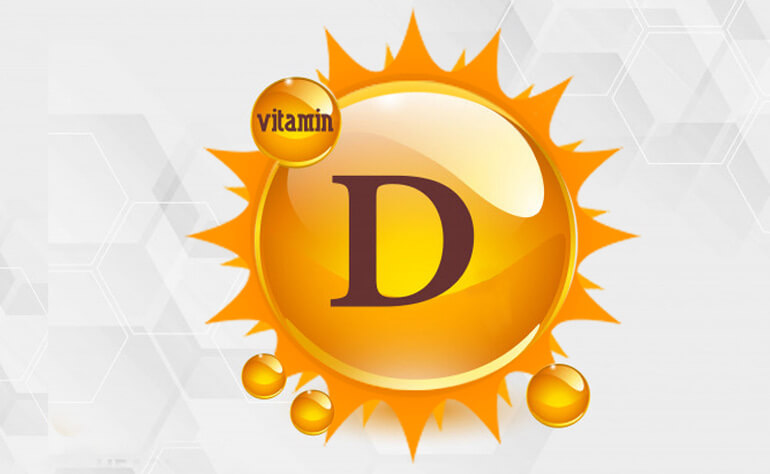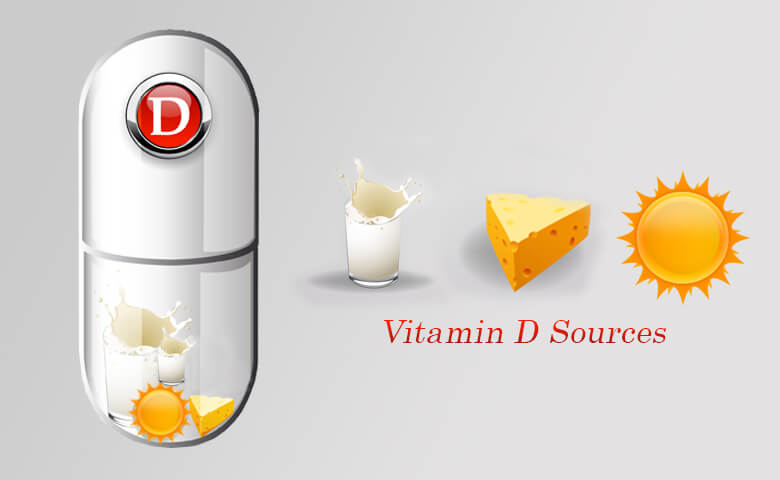Hey, our intention in writing this piece is to list out Vitamin D Foods for Vegetarians. Before that lets have a quick overview. Vitamin D is a fat soluble secosteroids responsible for increasing intestinal absorption of calcium, magnesium and phosphate, and other biological effects. It is present in very limited foods, added to others, and available as a dietary supplement. Our skin produces vitamin D in reaction to sunlight and stores it in fat for later use. How much vitamin D skin can produce depends on the time of day, season, latitude, skin pigmentation, age, and other factors.
Vitamin D plays a vital role in building strong, solid bones when we’re young and keeping them strong and healthy. Vitamins are the nutrient that body cannot produce it can only be consumed by diet. However, the body can produce vitamin D.
Table of Contents
Good Sources of Vitamin D for Vegetarians
Sunshine
When we exposed our skin to the sun ultraviolet B (UVB) rays, it produce vitamin D. According to the National Institute of Health (NIH), exposing your face, arms, legs, or back to sunlight for 5-30 minutes twice a week without sunscreen is sufficient to generate optimal vitamin D levels. However, several factors are responsible that can reduce your body’s vitamin D generation and excess sun exposure isn’t recommended, as it may raise your risk of skin cancer.
Also Read: Indian Gooseberry: Amla Benefits and Side Effects.
Certain Mushrooms
Mushrooms when exposed to UV light they have the unique ability to make Vitamin D. This makes them the only edible plant source of Vitamin D. The vitamin content in mushroom remains high for the duration of their shelf life and appears to be as effective at raising levels of this vitamin in your body as vitamin D.
Thus, UV exposed mushrooms contain varying levels of vitamin D and appear to be as effective at raising Vitamin D levels of supplements. However, most conventionally grown mushrooms aren’t exposed to UV rays and have very little of this vitamin.
Cheese
Cheese is a natural source of Vitamin D. Levels are based on the way the cheese is manufactured.
Fortified Foods
Therefore some foods naturally contain small amounts of Vitamin D, a variety of products are fortified with this nutrient. Although fortification standards vary by country, a few of these food includes:
- Cow milk
- Nondairy beverages – Plant milk like soy, rice, hemp, oat or almond milk are often fortified with similar amounts of vitamin D as cow’s milk.
- Yogurt – Some dairy and non- dairy are fortified in vitamin D.
- Tofu – Not all tofu’s are fortified.
- Hot and Cold Cereals – Oatmeal and ready to eat cereals are often fortified with vitamin D.
- Margarine – It is not typically fortified with vitamin D , many brads of margarine add this nutrient.
Supplements
Supplements can act as a reliable and consistent source. It can be of two forms. Vitamin D2, typically harvested from yeast or mushroom exposed to UV rays. And Vitamin D3, usually derived from fish oil or sheep’s wool, with vegan forms more recently developed from lichen.
Also Vitamin D3 appears to be more effective at raising and maintaining high blood levels of vitamin D than D2. Vitamin D is a fat- soluble, eating it with fatty foods may help increase its absorption.
Benefits of Vitamin D
It plays multiple roles in body. Plays vital role in promoting healthy bones and teeth, supporting immune, brain, and nervous system health. It regulates insulin levels and supporting diabetes management, supporting lung function and cardiovascular health. Influences the expression of genes which are involved in cancer development.
Deficiency
The body can create vitamin D deficiency that may occur due to many reasons.
Causes
Skin Type: Darker skin and sunscreen reduce the body’s ability to absorb the ultraviolet radiation B (UVB) rays from the sun. Absorbing sunlight is important for the skin to produce vitamin-D.
Sunscreen: A sunscreen with SPF (SUN PROTECTION FACTOR) of 30 can reduce the body’s ability to synthesize the vitamin. Covering the skin with clothes can inhibit vitamin –D production also.
Breastfeeding: Infants who breastfeed need vitamin-D supplement, especially if they have dark skin or have minimal sun exposure.


Symptoms
Low vitamin D Deficiency: Low vitamin D levels are widespread worldwide. Symptoms of deficiency include regular sickness or infection, fatigue, bone and back pain, low mood, impaired wound healing, hair loss, muscle pain. Yet very few foods contain this vitamin. Thus, it can be difficult to get enough of this nutrient from your diet, if you are particularly vegetarian.
If Vitamin-D deficiency is left untreated and continues for long periods it may results complications such as cardiovascular conditions, autoimmune problems, neurological diseases, infections, pregnancy complications, certain cancers, especially breast, prostrate, and colon.
Sunshine Vitamin: It is also known as a sunshine vitamin, as it is a fat- soluble vitamin essential for optimal health. It helps your body absorb calcium and maintain adequate serum magnesium and phosphate concentration- three nutrients important for your teeth, muscles and bones. It also plays crucial roles in brain development, heart function your immune system, and mental health.
Vitamin D Toxicity
Reference daily intake (RDI) is 400-800 IU (10-20 mcg) intake depending on factors like age and pregnancy. Exceeding this dosage for extended periods is not recommended as it may cause toxicity.
Symptoms: It may includes confusion, difficulty concentrating, depression, abdominal pain, vomiting, high blood pressure, hearing loss, psychosis and in extreme cases – kidney failure and coma.
Summary
Although vitamin D plays several crucial roles in your body, few foods naturally contain it- and vegetarian or vegan sources are especially sparse. Spending time in sunlight is a great way to boost your level. You can try food like wild mushrooms, egg yolks, or items enriched with vitamin D. Supplements are other options. If you’re concerned that you may have low levels of this vitamins, than consult to your doctors.

